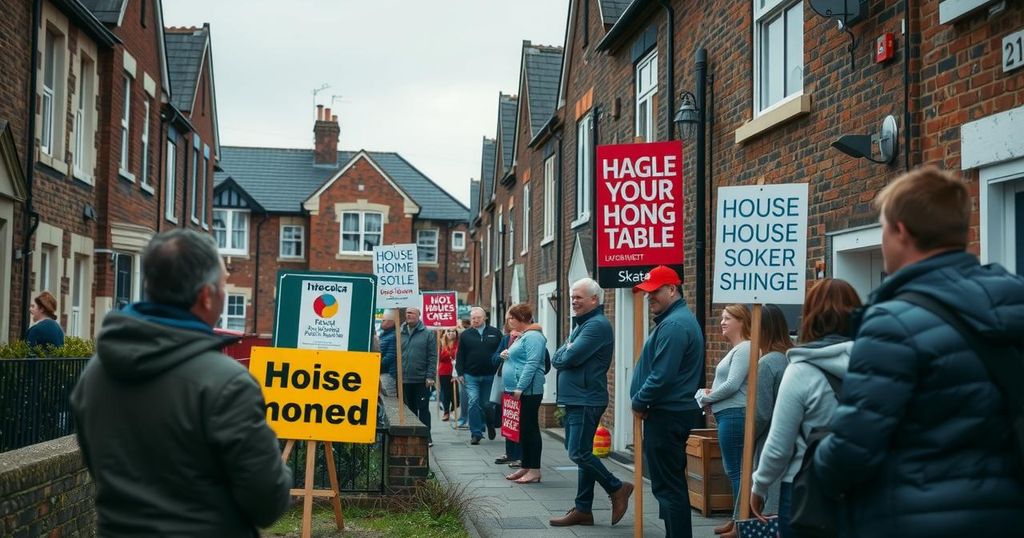Tight Election in Ireland Highlights Housing Crisis Concerns

Ireland has recently held a closely contested election featuring Fine Gael and Fianna Fail vying with Sinn Fein amidst a severe housing crisis. Polling indicated similar support levels across these parties, with pressing public concerns influencing voter sentiment. The election results will unfold gradually as the counting process extends over several days, reflecting on broader issues of governance and social welfare.
Ireland recently conducted a closely contested election characterized by significant public concern over a housing crisis. Polls indicated a fierce competition between the centre-right coalition parties, Fine Gael and Fianna Fail, and the leftist-nationalist opposition, Sinn Fein, with each faction garnering roughly 20 percent of voter support. Voter turnout commenced on a Friday, amidst an atmosphere of increasing tension surrounding the ongoing issues of housing and cost of living, which have detrimentally impacted many citizens.
The election was called by Prime Minister Simon Harris of Fine Gael following the announcement of a substantial budget surplus, which facilitated a commitment to tax cuts and increases in government spending. However, the coalition’s trajectory changed after a contentious encounter between the Prime Minister and a disgruntled care worker gained widespread attention on social media. Sinn Fein previously dominated the opinion polls, boasting approval ratings exceeding 30 percent, but began to lose ground due to growing dissatisfaction regarding its liberal immigration stance.
The backdrop of this election centers on a severe housing shortage in Ireland that has escalated rental prices and property costs to unprecedented levels. Despite Ireland’s robust public finances, bolstered by significant revenue from foreign multinational corporations, public discontent has mounted regarding the government’s ability to effectively manage public services, particularly in the context of housing construction. The intricacies of the electoral process, employing a system of proportional representation across Ireland’s 43 constituencies, suggest that final results may take several days to ascertain as ballot counting commenced the day following the election.
The current electoral landscape in Ireland is molded by long-standing issues related to housing and public service management, which have become increasingly pressing as living costs rise. The coalition formed by Fine Gael and Fianna Fail marks a departure from their historic rivalry, prompted by an earlier election that did not yield a clear victor. This political dynamic is contrasted sharply by Sinn Fein, which has grappled with public perception influenced by its historical connections to the Irish Republican Army. Consequently, the election serves not merely as a contest for power but also a referendum on the efficacy of policies addressing pressing societal needs.
In summary, Ireland’s recent election reflected deep-seated concerns over housing and living costs amid a tightly contested race among three major political parties. As electoral outcomes are scrutinized in the coming days, the viability of the coalition’s governance will likely hinge upon its ability to address these pressing public concerns, particularly in the realm of housing policy and public service management, which have garnered significant voter attention and dissatisfaction.
Original Source: www.aljazeera.com







